Conversation group assists both native and beginning speakers
Professor Chiu-Hsin Lin explains different ways to buy an airplane ticket in China to a group of students.
March 13, 2014
Learning a second language requires more than just speaking, reading and writing it.
It evokes an understanding of the culture and customs along with being able to retain and practice the language. This is the environment created by the EWU Chinese Conversation Group.
According to Nations Online, Mandarin is the most widely spoken first language in the world, with over 1.2 billion speakers in 31 different countries. The EWU Chinese Conversation Group facilitates Eastern’s need for Chinese language on campus after the cut of Chinese language courses in the Spring of 2009.
Started in the fall of 2012, the group provides a no-pressure atmosphere for all levels of speakers. The group was started by EWU senior Mollie Gower and associate professor of philosophy Chris Kirby, who teaches Chinese philosophy and is the faculty adviser for the group.
Kirby explained that he was contacted by Gower while she was working as an assistant in the EWU Honors Program. Kirby had helped lead an honors trip to China the previous year and had mentioned to Dana Elder, director of University Honors, that he would be interested in sponsoring a conversation group for Mandarin Chinese.
Gower had previously studied Chinese and wanted to continue learning, along with retaining the skills she already had.
The group generally meets at least once a week but is meeting twice a week during winter 2014. The group is also regularly joined by professor Chiu-Hsin Lin, a faculty member in the English Language Institute. Lin is from Taiwan and speaks Mandarin Chinese along with Taiwanese. Lin reads both traditional and simplified Chinese characters as well. Simplified characters have less strokes than traditional.
Lin explained that they try to bring in some of the cultural aspects to the group. They like to brainstorm what topics are of interest to the club members.
Lin said, “We learned a lot of really useful and practical language aspects. The purpose [of the club] is what the students need.”
Some of the areas covered by the group include calligraphy and cultural customs. The group is a mix of many different levels of speakers including native speakers. The meetings generally have around five to 10 students.
Lin explained the purpose of the club is to teach practical areas including how to interact with people in China and the cultural do’s and don’ts.
Luke Skaarup, a junior in computer science, is a member of the group who had no previous background with Chinese, but became interested in learning the language during a visit he took to China when he was 10 to pick up his adopted sister.
Skaarup said, “I had been interested in learning Chinese for a long time and was hoping to take it here at Eastern. After registering, I learned Chinese was not offered as a class [and enrolled] in Japanese instead. That week, I learned from another friend of mine who had started going to the [Chinese Conversation Group] which led to me trying it out.”
The group is also frequently joined by native speakers on exchange at Eastern.
Skaarup said, “The best part about the [Chinese Conversation Group] is that many native speakers show up for meetings. They’re really friendly and have done a lot to help the group. They help us learn a lot, and being from different parts of China, [they] offer different cultural perspectives on the language that we are learning.”
With the large population of speakers in the world and the emergence of China as a world economic force, the Chinese language is becoming more relevant in multiple industries.
“I am surprised by how fast students can pick up Chinese,” said Lin. “A lot of people say Chinese is too hard to learn, but once you get into it the speaking, conversational part is not too difficult. [It’s] just like any other language. If you practice, you can master.”



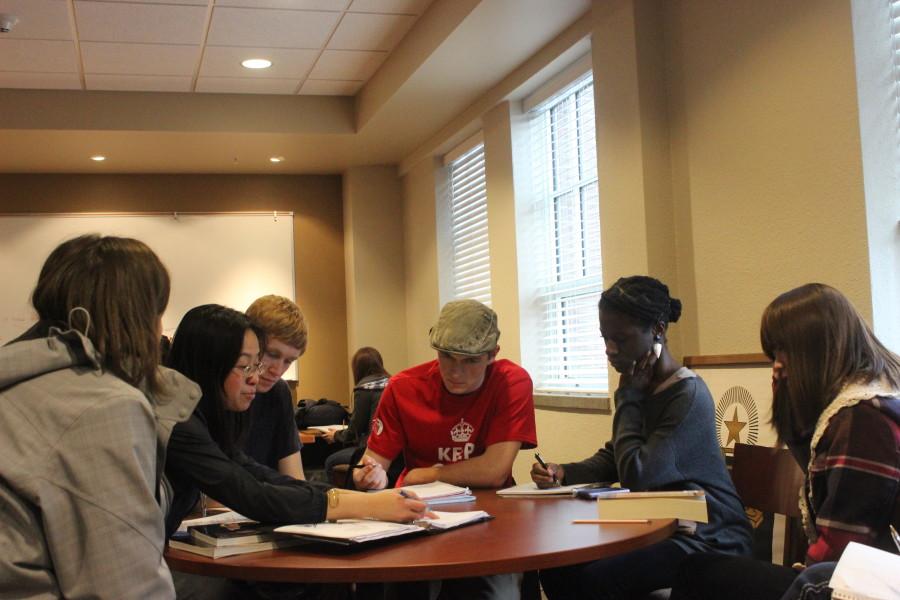
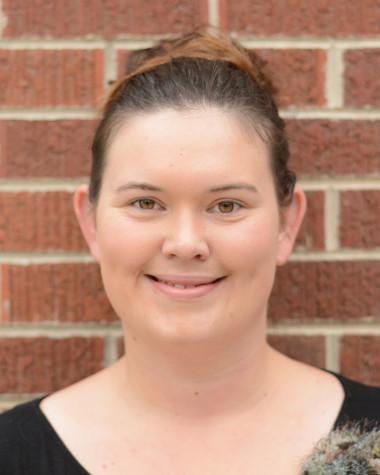


![Simmons said the biggest reasons for her success this year were “God, hard work, and trusting [her] coach and what she has planned.”](https://theeasterner.org/wp-content/uploads/2024/05/image1-1-1200x800.jpg)





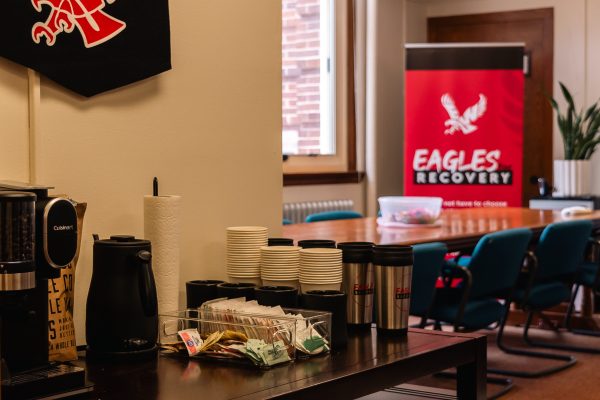

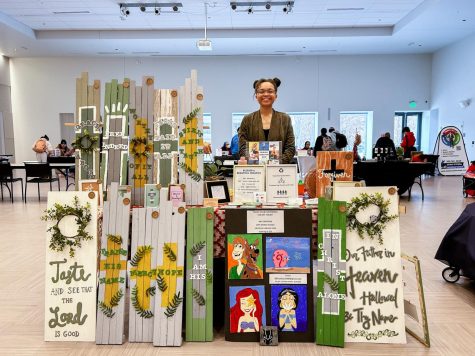
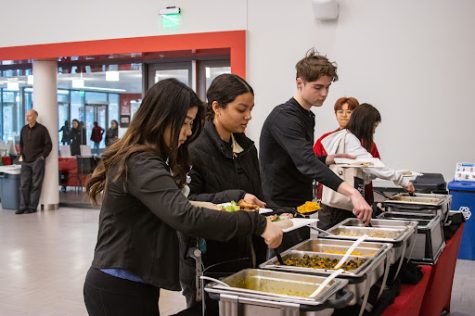

Peachy Sanchez • May 24, 2015 at 5:50 am
Hi! This is good. When learning to speak a language, group activities and discussions are really helpful. A get-together of people with the same learning goals. Practice is always key. But when at home or when not in the group, one should still continue practicing. What I tried before was this online program : http://preply.com/en/skype/english-native-speakers where I was able to practice English with native speakers online. This way, you learn new things even when you’re not in your learning group. Another advantage is that you can share what you have learned to your group. 🙂